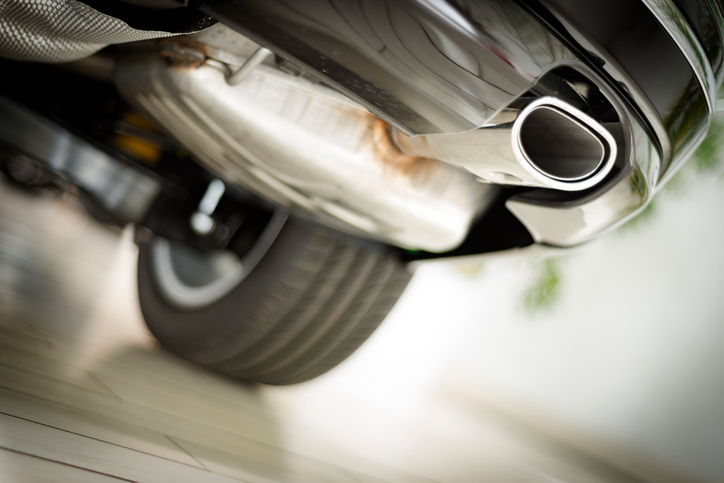
Gasoline engines are loud. Essentially, they work by creating a series of controlled explosions, which provide the energy needed to move a car’s many parts very quickly and get it in motion.
To reduce some of the noise pollution caused by the average car’s engine, mufflers are included in the exhaust system of all gasoline cars sold today. Because of how effective they are at neutralizing some of the noise, it’s usually illegal to remove them—cars just make too much of a racket when they don’t have a muffler.
Curious about how this part works? Here are a few useful facts you might not know about mufflers.
1. Mufflers Negate the Sound Caused by Engine Vibrations
Sound is really just vibrations being detected by the ear. The stronger the vibration, the louder the noise. That means that a muffler’s job is basically to reduce the strength of the vibrations a car creates when it burns gas and moves.
When the vibrations created by the engine reach the car’s exhaust, a fair amount of them go through the muffler before being released into the air. A series of tubes inside the muffler bounce the sound waves around in a way that creates opposing vibrations. These cancel out some of the original sound waves, reducing their power and causing cars to make significantly less noise than they would otherwise.
When something goes wrong with a muffler’s tubes, the noise reduction can be greatly diminished, and cars can emit a loud roar. Completing an auto mechanic training program will teach you how to correct this kind of issue, and get cars running (relatively) quietly again.
2. Automotive Maintenance Technicians Know That, Unfortunately, Mufflers Weaken Cars
Mufflers slow down the speed at which a car releases exhaust into the atmosphere. This makes for a pressure buildup in the car, and has a slight negative effect on how efficient a car can be. The result is slightly reduced efficiency and less power for the amount of gas being burned.
As mentioned, it’s illegal to have no muffler on a car, so carmakers and drivers alike accept this slight reduction in efficiency. Some aftermarket mufflers are less restrictive, with different interior configurations, wider exhaust piping, and other tweaks. These can allow more of the gases—and sound—to be released, which makes for slightly louder, slightly more powerful cars. It often leads to a noticeable, but not enormous difference in efficiency.
Is it worth the noise trade-off? That depends on a driver’s preference. If ever you’re replacing a muffler and have to choose between a louder, more efficient option, and a quieter, less efficient option, consider giving your customer a primer on how they compare. They might appreciate having a say in how their car sounds from then on.
3. Grads of Auto Mechanic Training Programs Know That Broken Mufflers Can Hurt Efficiency
Mufflers can be even worse for a car’s fuel efficiency when they are broken. Sometimes, a muffler can partially collapse, preventing gases from exiting the exhaust correctly. The engine’s efficiency can become greatly reduced when this happens, and the car could suddenly require a lot more gas to get around.
Wondering how labour-intensive it will be to replace a muffler in your automotive maintenance technician career? It typically depends on the extent of the damage, and on how easy it is to install a replacement. It’s not uncommon for easier jobs to have labour costs of around $100, though situations where an entire exhaust system needs to be replaced can cost several hundred dollars. As with most car repairs, you’ll find the exact quote varies from case to case.

Do you want to study at an auto mechanic school in Montreal?
Visit Automotive Training Centres to learn more about our programs!

